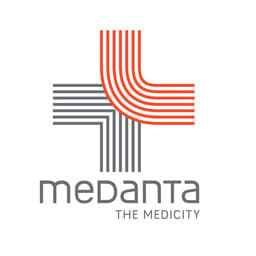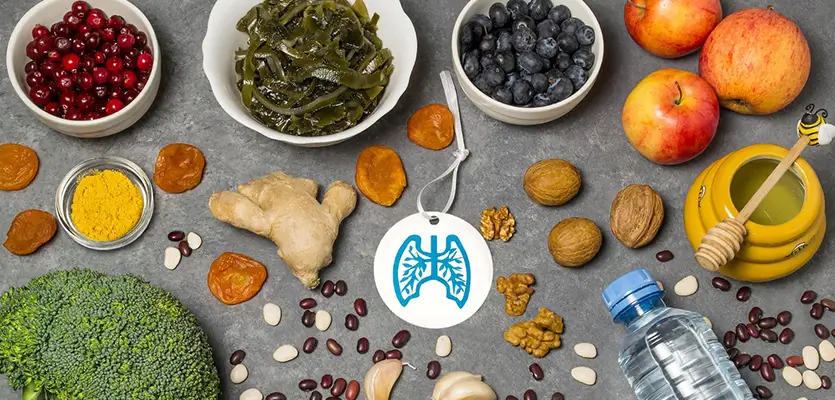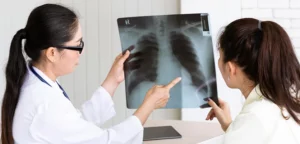In order to fully recover from a lung transplant, a good, balanced diet is essential. As with any diet after any surgery, a good diet for lung transplant patients must be inclusive of enough calories and protein in order to facilitate speedy wound healing. Additionally, the potential adverse effects of anti-rejection drugs may result in a greater need for nutrients. You might need to alter your diet after your transplant for a while due to these unique considerations. However, you need not worry too much about this. The transplant team will always help modify your diet plan and meal timings to fit your unique needs and tolerances.
You may need to change your diet to be healthy and recover better after your lung transplant. By following a balanced diet and engaging in regular exercise, you may keep issues like high blood pressure, heart disease, and diabetes at bay.
A nutritionist (dietitian) is a member of your transplant team who may discuss your dietary requirements and respond to any queries you may have following the procedure. Your dietician can provide you advice on not only what to eat after a lung transplant, but also what foods can interact with your prescription drugs and how to safely prepare food to reduce the risk of foodborne illness.
A Healthy Diet Right After Lung Transplant
Recovery from a lung transplant depends greatly on nutrition. Your body will heal itself better and faster if you consume enough protein, calories, vitamins, and minerals. Protein aids in tissue growth, muscular protection, and infection prevention. Your body gets the energy it needs for recuperation from a diet high in carbohydrates and fats.
A certified dietician may collaborate with you to create a dietary plan to help you and guide you about what to eat after a lung transplant,
in order to track your weight gain following transplant surgery. Your weight, the results of your blood tests, and the drugs you are taking will all affect this plan.
A healthy diet right after a lung transplant will be a part of your dietary regimen which may be created to suit your individual requirements of post surgery recovery.
What To Eat After Lung Transplant
Better post-transplant outcomes and survival are linked to optimum nutritional health and to eating the right diet after a lung transplant. However, managing nutrition after a lung transplant is particularly difficult since lung recipients are a very diverse group of patients in terms of their age, underlying illnesses, weight status, and presence of comorbidities.
Additionally, there are a number of stages in the post-transplant period marked by physiological and pathophysiological changes that alter patients’ nutritional status and call for specialized nutrition care.
The details below outline some of the dietary recommendations that a nutritionist could provide for you in order to help you understand what to eat after a lung transplant. These recommendations only focus on a few potential diet adjustments. Remember to consult your nutritionist/dietician before you add or modify anything in your diet right after a lung transplant.
Potassium
You can see a rapid rise or fall in your potassium level if you use some transplant medications. Although this is a serious condition, it often subsides quickly. If you notice these changes, you will need to avoid high-potassium foods such as bananas, oranges, potatoes, dark green vegetables, and lentils. You may also avoid salt substitutes that contain potassium. Make sure to eat the meals your nutritionist suggests in order to manage your blood potassium level.
Protein
After your transplant, you will require a high-protein diet for 6–8 weeks. High protein diets will be necessary for you to recover from surgery, create new cells, and avoid infection. It is important to consume enough protein, and total calories, to help your wounds heal. For three months or more, a high-protein diet may be necessary if you had lost muscle before your transplant in order to regain your strength. meat, fish, dairy products, eggs, nuts, split peas, soy products, dried beans, peanut butter, tofu etc are the foods that are recommended to help meet your protein needs
Sugar
The body’s capacity to utilize blood sugar as fuel may be reduced by steroid drugs. This could result in elevated blood sugar (glucose). Hyperglycemia or steroid-induced diabetes brought on by steroids are the two terms used to describe this condition.
Avoiding concentrated carbohydrates will help reduce the negative effects of steroid medicines. Three meals a day, eaten at regular and evenly spaced intervals, may need to be added to your diet if you develop hyperglycemia.
Your diet will be restricted to consuming only fresh or water-packed canned fruit, and limiting fruit consumption to one serving each meal (no syrup or added sugar).
Avoiding items with sugar, honey, sucrose, dextrose, or corn syrup for example:
canned fruit or juice with added sugar or syrup, honey, soft drinks, cookies, candy, doughnuts, ice cream, jams, jellies, marmalade, puddings, frozen fruit with added sugar or syrup, etc.
Sodium
After lung transplantation, many patients develop high blood pressure or fluid retention because certain drugs can increase salt and water retention. This also tends to raise your blood pressure. As a result, you might need to limit your intake of salt. Diets with “no added salt” are typically advised post-surgery. It is preferable to avoid adding salt at the table over the food and to use less salt while cooking because salt contains sodium. Avoid foods high in salt, such as processed meats, pickles, potato chips, popcorn, salted nuts, soy sauce, salad dressings, and monosodium glutamate.
A key component of keeping one’s body in excellent shape is having healthy eating habits. Additionally, it lowers your chance of developing issues like high cholesterol, infections, diabetes, and obesity.
Follow the individualized eating plan that your medical team will design for you. To lower the risk of infection, there are frequent dietary restrictions, such as restrictions on consuming raw shellfish and undercooked foods. Another thing to keep in mind is to stay away from certain fruits that can affect your medications. Your transplant team will go through these restrictions in detail with you.
FAQs
Every transplant program may have somewhat different guidelines that you should abide by throughout your initial recovery. Prior to your release, your transplant team will go through these guidelines with you and is also likely to send you home with resources and contact details in case you have any queries. Besides following all instructions from your care team, make sure you eat right, exercise, take your medications and take care of yourself while you’re recovering.
Here are a few precautions that should be taken before preparing a diet for lung transplant patients
- Wash hands frequently when working with food
- Avoid cross-contamination
- Cook all animal foods to appropriate temperatures
- Do not eat raw or undercooked meats
- Drink from safe water supplies

.webp)



